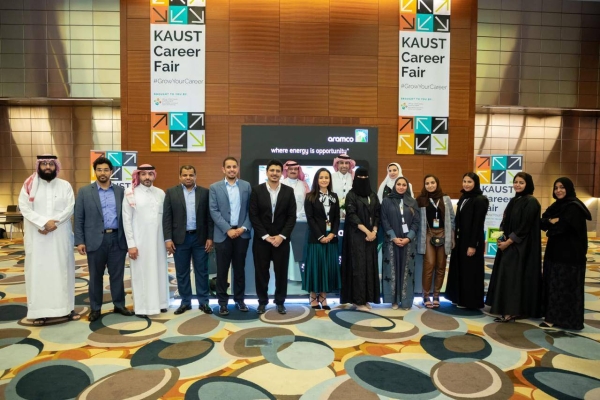King Abdullah University of Science and Technology (KAUST) is leading the way in ensuring that young people in Saudi Arabia are well-equipped to succeed in the rapidly-changing economy of the Kingdom. The Future Talent Conference, which featured Fireside Talks, took place on March 15 and showcased some of the top minds in the field. Saudi Arabia’s Vision 2030 goals include significant increases in non-oil government revenue, private sector contribution, and GDP contributions from SMEs. Additionally, the unemployment rate is targeted to decrease significantly. With so much investment in the research and innovation ecosystem, the impact on the career paths of Saudi students is apparent, and KAUST is also undergoing significant changes to support the development of the Kingdom. The conference featured experts from KAUST and industry discussing how market dynamics and technology are impacting both employees and employers. By advancing groundbreaking research and preparing the next generation for opportunities, KAUST is contributing significantly to the Kingdom’s growth and sustainability.
Bridging the Gap Between Saudi Arabia’s Economy and Talent Development
In her opening remarks, Dr. Najah Ashry, the Vice President of KAUST for Strategic National Advancement, highlighted that Saudi Arabia is currently undergoing a significant transformation towards a sustainable future. This transformation is not only focused on the country’s economy but also includes the development of top talents that can support this economic growth.
Bridging the Gap Between Saudi Arabia’s Economy and Talent Development
King Abdullah University of Science and Technology (KAUST) is leading the way in ensuring that young people in Saudi Arabia are well-equipped to succeed in the rapidly-changing economy of the Kingdom. The Future Talent Conference, which featured Fireside Talks, took place on March 15 and showcased some of the top minds in the field.
Dr. Najah Ashry, Vice President of KAUST for Strategic National Advancement, highlighted that the Kingdom is currently undergoing a massive transformation towards a sustainable future, which is unparalleled throughout history. This transformation is expected to impact the job market and redefine the future of the country. Saudi Arabia’s Vision 2030 goals include significant increases in non-oil government revenue, private sector contribution, and GDP contributions from SMEs. Additionally, the unemployment rate is targeted to decrease significantly.
With so much investment in the research and innovation ecosystem, the impact on the career paths of Saudi students is apparent, and KAUST is also undergoing significant changes to support the development of the Kingdom. Dana Al-Sulaiman, an Assistant Professor at KAUST, emphasized that the Kingdom’s Vision 2030 is aligning different industries, programs, and people towards a common cause. By advancing groundbreaking research and preparing the next generation for opportunities, KAUST is contributing significantly to the Kingdom’s growth and sustainability.
The Future Talent Conference featured experts from KAUST and industry discussing how market dynamics and technology are impacting both employees and employers. Tania Tasopoulou, Director of Workforce Planning and Development at Beacon Development, believes that the Saudi Green Initiative will provide job growth, but industry must ensure that the ‘right’ workforce skills are developed. Shinkyu Park, Assistant Professor in Electrical and Computer Engineering at KAUST, emphasized that industry collaboration is key to academic alignment, helping to ensure young people’s education matches the technology research requirements.
Omar Khasawneh, Startup Incubation Lead at KAUST, believes that with the Kingdom’s plan to increase the presence of SMEs in the overall economy, young people have much more access to capital to start their own companies or join an early-stage enterprise. Additionally, an increase in SMEs will change the dynamics for attracting and retaining talent, with larger employers forced to compete for a limited pool of available skilled workers.
SaudiVax, a biotechnology firm that develops vaccines and biologics to meet unmet regional medical demands, is building a biotechnological ecosystem in the Kingdom. Project Manager Leena Alameer highlighted that SaudiVax has a training program to bring more Saudis into the pharma sector, which will touch base from the development stage to the upscaling and marketing stage of new products, particularly vaccines.
In conclusion, with a generation of future leaders inspired and educated towards addressing the same challenges, the Kingdom can advance quickly towards prosperity and sustainability.
Don’t miss interesting posts on Famousbio
